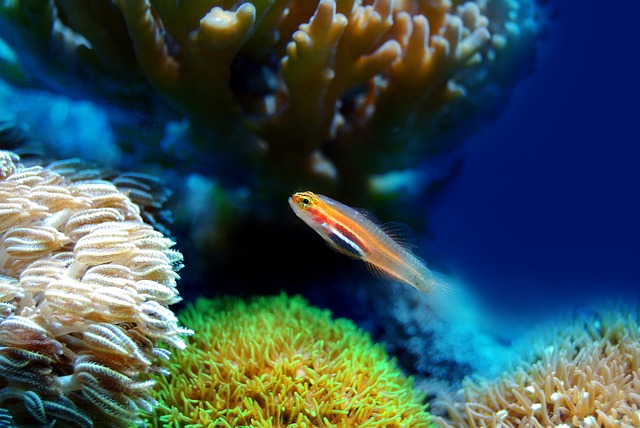Coral reefs, facing the danger of the changing climate, is all set to be protected by an alliance of nations, the members of which would raise $12 billion to protect coral reefs from threats such as pollution and overfishing. However, experts aren’t too thrilled about the funding and have warned that it would only be a drop in the ocean unless broader climate risks are addressed.
The International Coral Reef Initiative (ICRI) said it would secure public and private investment to help conserve and restore coral ecosystems, which sustain a quarter of the world’s marine species and more than a billion people. ICRI is a global partnership between Nations and organizations which strives to preserve coral reefs and related ecosystems around the world.
Launched in 1994, ICRI now includes 45 member countries, and aims to “secure the future” of 125,000 square kilometres of shallow-water tropical coral reefs and double the areas under effective protection by the end of the decade.
Coral Reefs
Coral reef, an underwater ecosystem comprising of colonies of corals, held together by a building of calcium carbonate. These reefs are considered extremely important for healthy marine ecology. One of the rarest and exquisite ecosystems on Earth, it is a source of food and shelter for about 25% of all marine species.
However, in recent years, due to the changing and extreme weather conditions, coral reefs face the threat of survival. Rising marine pollution, destructive coastal development, fishing fleets, have put their survival in immense pressure and threat. The worst threat they face is the rising temperature in the oceans. The rising sea temperature to causes the coral to expel colourful algae living inside them, a phenomenon known as “bleaching”.
Furthermore, increased tourism activities, plastic wastes, untreated water pollution, rising sea temperatures, oil spills also cause a threat to the coral system.
Threat surrounding the corals
In 2021, UNESCO recommended that the Great Barrier Reef should be put on the list of World Heritage In Danger due to the damage caused to it by climate change.
However, the 45th session of the World Heritage Committee, held in September 2023, agreed to adopt the draft decision proposed by UNESCO to not consider the Great Barrier Reef for the List of World Heritage In Danger, as an acknowledgement of the increased action Australia is taking to protect the Great Barrier Reef, including a billion-dollar package to protect the reef.
Nonetheless, this puts in light the poor state of coral reefs, that are the backbone for the entire ocean. According to Jeff Orlowski, Environmentalist and Director of documentary, ‘Chasing Coral’, “Corals reefs are the nursery for the ocean. About a quarter of all marine life in the ocean spends part of its lifecycle on a coral reef. And there are about a billion or so people that depend on coral reefs for fish for their food, for protein.”
The corals also contribute to the fishing industry, protect the beaches and coastlines from erosion, act as ocean’s filter, and provides life-saving medicines.
According to International Union for Conservation of Nature (IUCN) report, the coral reefs in the Western Indian Ocean might see the end of light within 50 years.
Earlier, scientists from the University of Hawaii Manoa said that of the world’s existing coral reefs, about 70-90% are predicted to disappear in the next 20 years. The Western Indian Ocean region comprises of 10 countries – Comoros, France, Kenya, Madagascar, Mauritius, Mozambique, Seychelles, Somalia, South Africa, and Tanzania.
Environment experts say that strong and timely decision is required to save the corals from disappearing. David Obura, Chair, IUCN SSC Corals Specialist Group, in the past has suggested the need to take decisive action to address both global threats to corals from climate change, and local ones, such as overfishing.
According to Mishal Gudka, Scientist, overfishing is a major concern and it is needed to improve local fisheries management to ensure the health of reef systems and secure sustainable fish stocks.
_______________
______________














